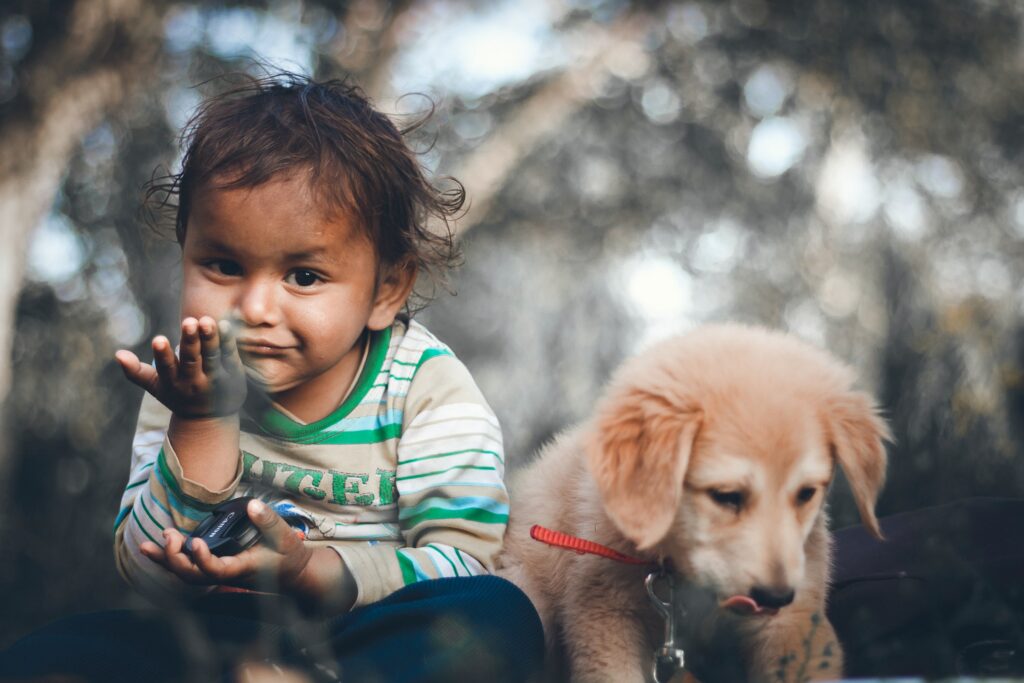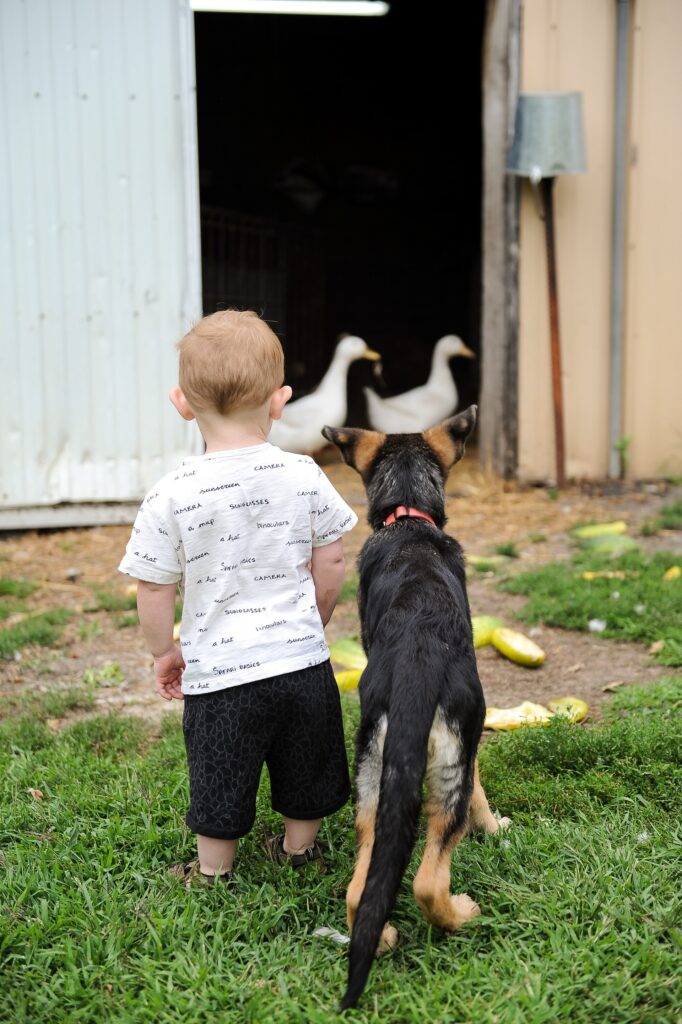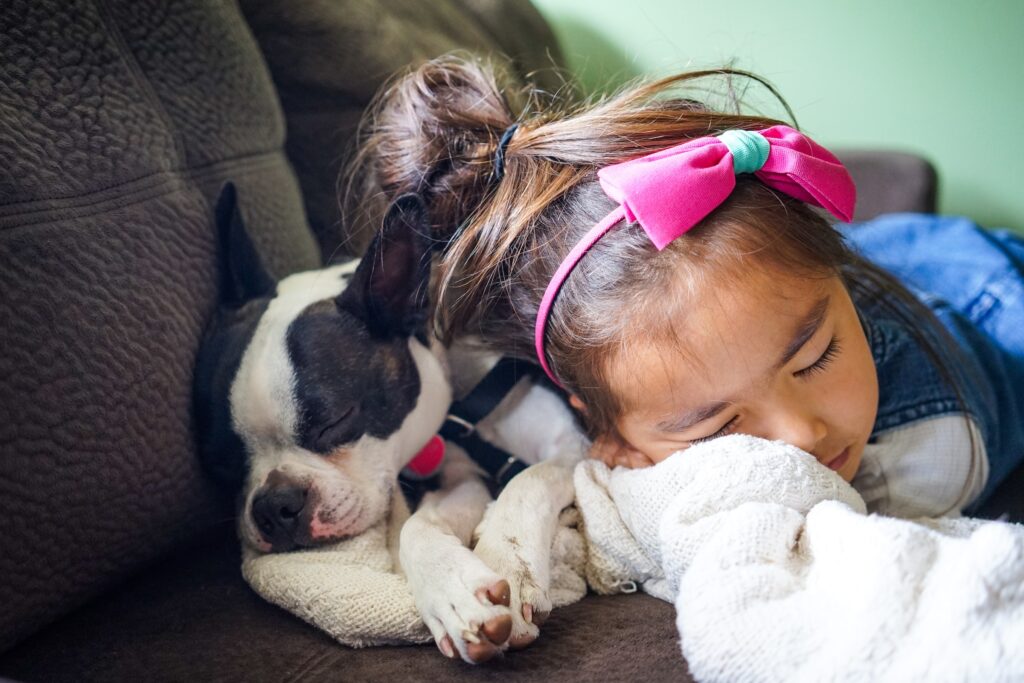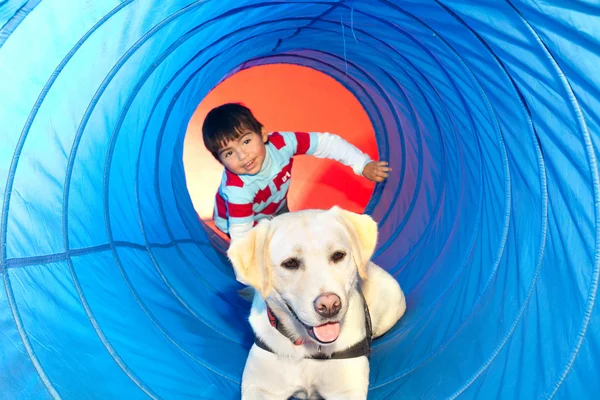The Role of Pet Dogs in Cultivating Warmth and Responsibility in Adopted Children
In a dynamic world where relationships are often challenging, pets serve as silent yet powerful emotional anchors. Pet dogs, in particular, can play a pivotal role in enhancing psychological development and fostering resilience in adopted children.
Their loyal and intuitive companionship can stimulate a sense of warmth and responsibility in these children, ultimately aiding their overall growth.
The Best Companions
Adopting a child is a journey of love, understanding, and forging connections. While the bond between parent and child is incomparable, the addition of a four-legged companion can further enhance the warmth and stability of a home.
The right dog, with its wagging tail and infectious enthusiasm, can be a pillar of support for children as they transition into their new lives. But, with countless breeds out there, which ones gel the best with children, especially those who’ve experienced the adoption process?
The Beagle, with its merry disposition and affectionate nature, often finds itself on top of such lists. These dogs, neither too big nor too small, are famed for their patience and playful behavior, making them excellent companions for children who may be craving a mix of fun and reassurance.
Golden Retrievers and Labradors are other breeds that are frequently celebrated for their friendly demeanor and adaptability. Their gentle nature, combined with their eagerness to please, often results in a deep, unspoken bond with children. Their ability to sense emotions and act accordingly makes them particularly empathetic companions for kids navigating the complexities of adoption.
For families looking for smaller breeds, the Cavalier King Charles Spaniel is a great choice. Their lapdog nature combined with a calm temperament can offer comfort to children, especially those who might feel overwhelmed in new environments.
But at the end of the day, it’s not solely about the breed. The individual personality of the dog, its upbringing, and the environment it’s introduced to are all pivotal.
Dogs, with their intuitive nature, can resonate with a child’s emotions, offering a balance of play, protection, and peace. Their adaptive nature, rooted in genuine affection and loyalty, can become a cornerstone in an adoptive family’s journey, and here is why:
Unconditional Love and Affection
Dogs are more than just affectionate creatures; they epitomize the very essence of loyalty, patience, and undying love. Their presence is synonymous with comfort, warmth, and a form of company that transcends the barriers of language and emotion.
For adopted children, the journey to feeling integrated and accepted in a new home can often be peppered with daunting emotions, from feelings of abandonment to complex layers of insecurity.
In such turbulent times, the unwavering love of a dog can act as a beacon of solace, grounding them and assuring them of a friend by their side.
Infants: While their understanding of the world is still in its formative stages, infants have an innate ability to tune into emotions. Their world is one of sensations and feelings, and in this domain, dogs shine the brightest.
The soft padding of a dog’s paw, the gentle rhythm of its breathing, or a tender nuzzle against their cheek can have a profoundly calming effect on infants. This connection goes beyond mere comfort; it sows the seeds of trust, making them feel safe and secure in their new environment.
Older Kids: As children grow, their memories and experiences shape their perceptions. Older adoptees might come with a suitcase of past memories, some happy, some painful. In navigating these memories, they need an anchor, and dogs often rise to the occasion.
Unlike humans, dogs don’t probe or question; they simply listen and comfort. Whether it’s sharing silent moments, engaging in playful activities, or just the act of laying down beside their furry friend, older kids find in dogs a non-judgmental companion.
Their love is unconditional, free from the complexities and conditions that sometimes come with human relationships.
Responsibility and Routine
Adopted children, especially those who’ve experienced upheaval or unstable environments, can benefit from the structure and routine that caring for a pet dog entails.

Daily Care: Tasks like feeding, walking, and grooming the dog can introduce a sense of routine into the child’s day. This consistency can be grounding for children, offering them a sense of predictability in their new environment.
Shared Responsibility: By participating in the care of the pet, children learn about responsibility. It teaches them to look after another being, understanding its needs and ensuring its well-being.
Building Trust and Social Skills
Dogs, by their nature, are social animals that thrive on interaction. For adopted children, this can be a gateway to developing trust and honing their social skills.
Bonding: Building a relationship with a pet, understanding its cues, and earning its trust can serve as a template for human relationships. It can give children the confidence to forge bonds with their new family and peers.

Social Interaction: Dogs often attract social interactions, whether it’s a chat in the park or a playdate with other kids and their pets. For children who may be shy or hesitant, dogs can act as social catalysts, making introductions easier and interactions more frequent.
Healing and Therapy
The therapeutic potential of pets, especially dogs, spans a wide range of emotional and mental domains.
Whether it’s the soulful eyes that seem to understand pain without words or the gentle nudge that offers silent solidarity, dogs have a unique ability to connect and heal.
Their therapeutic impact resonates differently with infants, older kids, and adolescents, each deriving a distinct kind of solace and support.
Infants: At this tender age, infants primarily experience the world through sensory stimuli. The rhythmic heartbeat of a dog lying next to them or the soft touch of its fur can offer profound comfort.
It creates an environment of safety, often helping infants who may have faced early life traumas to establish a sense of trust and attachment. While they may not cognitively grasp the entirety of their surroundings, the emotional support provided by the dog fosters a stable and nurturing atmosphere, essential for their developmental needs.
Older Kids: Older adoptees, with a broader understanding of their past and present, sometimes grapple with intricate emotions ranging from feelings of abandonment to identity crises.

Dogs can act as anchors in such situations.
Their consistent presence, devoid of judgments or expectations, allows these children to process their emotions at their own pace. Therapy dogs, trained to sense distress or anxiety, can be particularly beneficial.
Their intuitive reactions, whether it’s curling up next to a distressed child or engaging them in a playful activity, can help mitigate feelings of isolation or sadness.
Therapy Dogs: Beyond regular emotional support, the structured involvement of therapy dogs in the healing process has gained traction over the years. Many adoption agencies and therapists recognize the transformative power of these canine companions.
Specifically trained to engage with children, these dogs help children articulate and navigate their feelings, often acting as bridges between the child and the therapist.

Whether it’s assisting in building trust, fostering a sense of security, or merely being a comforting presence during therapy sessions, their contributions are invaluable.
Wrapping Up
Adopted children often face unique emotional challenges. As families seek to create a warm, loving environment for these children, pet dogs can significantly contribute to this process.
Dogs, like the friendly and engaging Beagle, can help cultivate emotional warmth, facilitate trust-building, and encourage responsibility in these children. The symbiotic relationship between a child and their pet dog provides an enriching experience, fostering growth, empathy, and resilience in the adopted child’s life.
Hence, pet dogs are not just furry friends but crucial companions that can significantly aid the wholesome development of adopted children.
If your child was adopted from Adoption & Beyond, remember that we offer support services throughout the entire process. We understand there are many challenges involved in raising a child. Visit us online to reconnect.
This blog post is provided for educational and informational purposes only. Our services are not financial, business or legal advice. The information presented here is not a guarantee that you will obtain any results or earn any money using our content. Adoption & Beyond, Inc. owns all copyrights to the materials presented here unless otherwise noted.

